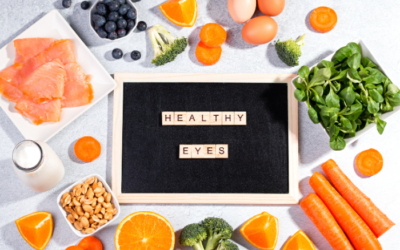Reboot Your Daily Routine
Fitness
Regular exercise can improve health
- increase energy
- boost your mood
- help with memory
- help you lose weight
- reduce the risk of heart disease
The question is how you make it a habit?
Get going first thing in the morning. The key is to know what you want to do the night before, so your body is in line with your brain. Give yourself a nightly pep talk and don’t think about it when you wake up. Just head to the gym, workout in your living room (Netflix and YouTube have tons of fitness videos to choose from) or just take the dog for a brisk 15 to 30-minute walk.
Don’t let your brain talk you out of what is good for your body, mind, and soul. The trick is, don’t think, just do.
Sleep
Better sleep habits can make a world of difference to your day
All that exercise you do in the morning will help you get to sleep better at night. Sleep is so important to overall wellness and is often the most ignored. Just look at all the perks of a good night’s rest:
- Improves memory: Sleep helps to strengthen your memories and even “practice” things you learn throughout the day.
- Longevity: Studies show that sleeping less than seven hours per night can cause a plethora of issues including diabetes, heart disease, depression, obesity, and anxiety. One study showed that people have an increased risk of death that is directly correlated to prolonged inadequate sleep. Shoot for at least over 7 hours to 8 hours per night to live longer and healthier. (1)(2)
- Get those creative juices flowing: Sleep can help to restructure and reorganize memories and skills you learned throughout the day. This can give you a fresh outlook and strengthen the emotional side of yourself – spurring creativity.
- Improve your grades: College student? Getting your master’s or Ph.D. while you are raising a family or working full time? More sleep means more A’s. A recent study shows that “poor sleep/wake cycles are associated with a poor academic performance” . (3)
Going to sleep at a set time and waking up at a set time can help your sleep-wake cycle to stay balanced. Don’t consume caffeine too close to bedtime and try to end screen time an hour before bed to help you get a deeper more restful sleep.
Diet
Make healthier dietary choices and reap the benefits
We all know breakfast is the most important meal of the day, but if you are grabbing a sugar-filled donut and coffee, you probably need to re-vamp your daily eating patterns. Making sure you are getting adequate nutrition every day can make you more energetic, eliminate food cravings and give your body what it needs when it needs it.
Here are a few tips for creating better dietary choices:
- Start the day with a glass of water. You may think you need coffee first but water will help hydrate your body. Bonus if you add lemon which can help to detox your body as well.
- Make breakfast a breeze by prepping some oatmeal the night before, freezing your smoothie ingredients in ready to use portions, and making sure you have carved out time to eat it. In a rush? Try ready-to-go options like freezing breakfast options and heating in the morning while you get dressed.
- Move over Omega 3, Omega 6 is important too! Omega 3 is an excellent way to boost your heart health, brain health, and even your mood. Omega 6 is another essential fatty acid that helps your body, however, it is best eaten with Omega 3 as it can trigger inflammation in the body if you have too many Omega 6 foods. So, the ratio should be balanced. Omega 6 rich foods include flaxseeds, hempseeds, grapeseed oil, pine nuts, pistachios, and acai.
- It is always good to take a daily multivitamin geared towards men’s health to fill nutritional gaps. In particular, get some coenzyme Q10 for energy, chromium to balance glucose, folic acid for Alzheimer’s risk and creatine to boost muscle.
Stress
Lower your stress levels for better health
Finally, the best thing you can do is break up with stress. It is bad for your heart and your mood. According to Simon A. Rego, PsyD, from Montefiore Medical Center, “men experience stress differently than women and are more likely to have high blood pressure, type 2 diabetes, and heart disease when under stress”. Combine that with the anxiety stress can cause and the fact that men are more likely to keep those feelings bottled up inside, stress isn’t just a health concern but can be downright deadly.
A few ways to incorporate stress-reducing techniques in your day to day.
- Get outdoors. Walking through nature is a way to combat negative thoughts and feel one with your surroundings; a sort of grounding, if you will.
- Set boundaries at work. Just because you have a cell phone, doesn’t mean you are available 24/7. Establish “office hours” and ignore all work-related messages (or social media) outside of the boundaries you set. Spending time unplugged can help you to re-focus and actually end up more productive than before. While you are at it, take a vacation at least once a year to fully disengage and renew yourself body, mind and spirit.
- Deep breathing, meditation, acupuncture, yoga, stretching, or a good game of basketball can all help you blow off steam, calm down, and balance your emotions while saying goodbye to stress.
It takes at least 28 days for a new behavior to become a habit. A daily routine that is gradually implemented can make wellness a priority in your life without it feeling like a burden. Focusing on what your needs are and how best to practice these habits can give you back control of your life and health.
References
1 Christer Hublin, MD, Ph.D.; Markku Partinen, MD, Ph.D.; Markku Koskenvuo, MD, Ph.D.; Jaakko Kaprio, MD, Ph.D. Sleep and Mortality: A Population-Based 22-Year Follow-Up Study. Journal SLEEP. Vol 30. No. 10. 1245-1253.
2 Institute of Medicine (US) Committee on Sleep Medicine and Research; Colten HR, Altevogt BM, editors. Sleep Disorders and Sleep Deprivation: An Unmet Public Health Problem. Washington (DC): National Academies Press (US); 2006. 3, Extent and Health Consequences of Chronic Sleep Loss and Sleep Disorders.
3. Andrew J. K. Phillips, William M. Clerx, Conor S. O’Brien, Akane Sano, Laura K. Barger, Rosalind W. Picard, Steven W. Lockley, Elizabeth B. Klerman & Charles A. Czeisler. “Irregular sleep/wake patterns are associated with poorer academic performance and delayed circadian and sleep/wake timing.” Scientific Reports volume 7, Article number: 3216 (2017). doi:10.1038/s41598-017-03171-4[/su_note]

Jemile earned a degree in Food Studies and Writing and has worked for almost 23 years in the medical and health industries. She has been a digital marketing consultant for Acupuncture Atlanta since 2011 as the social media manager and content manager. Writing has been a childhood dream for Jemile and writing daily for clients in the health, wellness, food, and art industries have been phenomenal. Jemile is originally from Brooklyn, NY, and lives in the Hudson Valley, NY. She lives with her husband, two daughters, her dog, and two fish. You can contact Jemile via Linkedin, her mom blog, or her website, lunaroseconsulting.com



